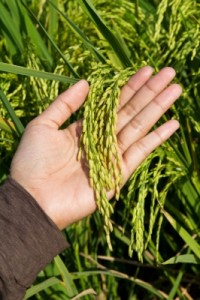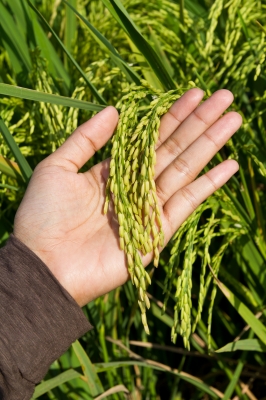 Large-scale smuggling of agricultural products should be elevated to an act of economic sabotage and imposed harsher punishment. This is the proposal of Marikina 2nd district representative Romero Quimbo in House Bill No. 6259 or the “Anti-Agricultural Smuggling Act of 2015.”
Large-scale smuggling of agricultural products should be elevated to an act of economic sabotage and imposed harsher punishment. This is the proposal of Marikina 2nd district representative Romero Quimbo in House Bill No. 6259 or the “Anti-Agricultural Smuggling Act of 2015.”
The measure aims to set higher penalties for large-scale smuggling of agricultural products to “secure the agricultural sector, ensure food security and prices stability, protect the income and well-being of Filipino farmers, and regain government revenues lost, to be used for improving the delivery of social services for the country.”
From 2013 to 2014, the government incurred losses of P64 billion in foregone revenues due to widespread smuggling of agricultural products, Quimbo cited a Samahang Industriya ng Agrikultura report.
“This amount represents a P32 billion loss per year, which could have been used for the construction of approximately 21,000 classrooms, or 2,600 health centers. In fact, the amount of loss reported for these two years is more than enough to cover the budget of the Department of Agriculture for 2016, and with an excess sufficient to help rehabilitate our agricultural sector,” Quimbo, who also heads the Committee on Ways and Means, said.
The lawmaker cited the report entitled “How Important Is Agriculture in the Economy?” written by Jose Ramon Albert, which noted that from 1985 to 2009, statistics showed most of those classified as poor belonged to the agricultural sector.
For the past two decades, Quimbo said the average share of agricultural employment to the total labor force has been one-third, or 36%, yet workers in the industry receive the lowest average daily basic wage compared to non-agriculture industries.
“This is appalling considering the agriculture industry is a significant driver of our country towards food security. This condition is aggravated by the occurrence of agricultural smuggling in that it takes away what little income that workers in the agricultural sector may have, as they have to compete with the prices that the agricultural smugglers offer to the market, thereby hampering this sector’s growth and sustainability,” Quimbo explained.
With the adverse effects of agricultural smuggling on government budget, food security, poverty alleviation, and other national concerns, Quimbo said laws need to be strengthened to deter smugglers.
“Recently, we initiated mechanisms to improve the Bureau of Customs (BOC) through the passage of the Customs Modernization and Tariff Act (CMTA) at the House of Representatives. Through my bill, we hope to complement the CMTA through the provision of stiffer penalties for agricultural smuggling to ensure the protection of the specific industry,” the lawmaker stated.
House Bill 6259 declares as economic sabotage the large-scale smuggling of sugar, corn, pork, poultry, garlic, onion, carrots, fish, and cruciferous vegetables, which are in their raw state or have undergone simple preparation or preservation, and which have a minimum value of P1 million.
The same holds true for smuggled rice valued at least P10 million by the BOC.
The measure imposes the penalty of life imprisonment on persons involved in the crime as well as fines them twice the fair value of the smuggled agricultural product and the aggregate amount of taxes, duties and other charges that were avoided.
Officers of dummy corporations and other entities that knowingly sell, lend, lease, assign, consent, or allow the unauthorized use of their import permits for purposes of smuggling will be imprisoned for 17 to 20 years and fined twice the fair value of the smuggled agricultural products and the aggregate amount of taxes, duties and other charges avoided.
The registered owner and its lessee of boats, vessels, trucks, vans and other means of transportation used to transport smuggled agricultural products will also be imprisoned 14 to 17 years and fined the fair value of the smuggled agricultural product and the aggregate amount of taxes, duties and other charges avoided.
The same penalty awaits the owner and lessee of a warehouse or property that knowingly store smuggled agricultural items; and the registered owner, lessee, and president or chief executive officer of the private port, fish port, fish landing sites, resorts, and airports who knowingly allow agricultural smuggling.
If the offender is a government employee, he will be given the maximum penalty prescribed, perpetually disqualified from public office, and stripped of the right to vote.
The House bill’s counterpart measure in the Senate is Bill 2923 filed by Senator Joseph Victor Ejercito.
Image courtesy of patpitchaya at FreeDigitalPhotos.net





